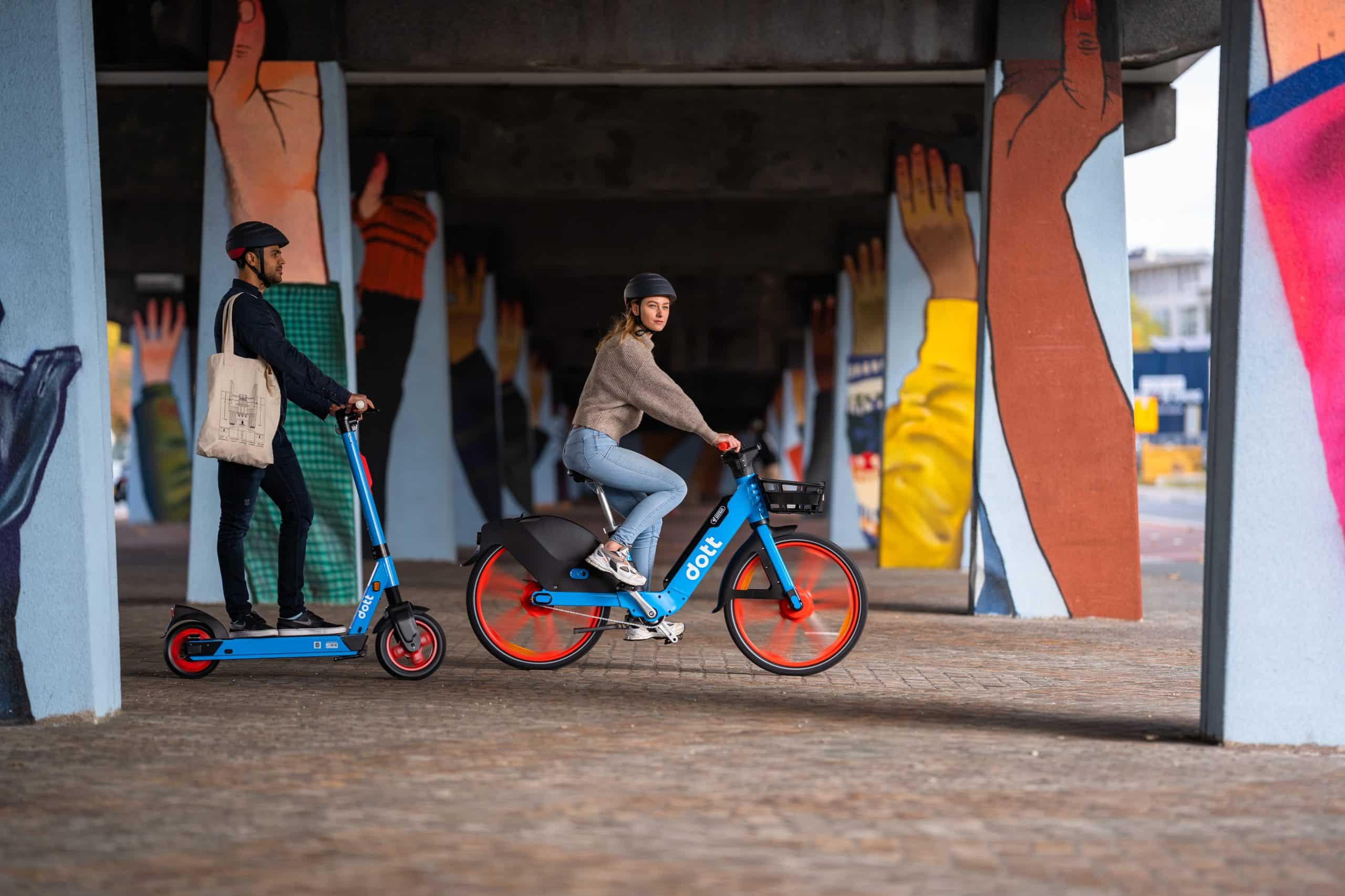


2 years ago
In our city centres, it is often the areas least connected to public transport networks which have the most affordable housing and are therefore home to the poorest in our society. The weak connectivity in these areas increases reliance on cars, which is expensive for drivers and contributes to the overall congestion and pollution in our cities.
Dott’s shared services can increase the catchment area of public transport, providing an effective solution to connect riders with metro, rail, bus and tram services. That’s why over half (58%) of our riders already connect their Dott trip to public transport. So what if lower priced travel could be offered to those communities which need it most?
We have been working on a trial in Brussels to provide discounted access to Dott’s shared e-bikes and e-scooters, improving transport access for targeted low income areas and reducing car emissions in city centres. The scheme was run in collaboration with ‘Molière’, a project set up by the European Union Agency for Space Programme (EUSPA).
Over a twelve week period this summer, reduced price trips were offered to residents in targeted neighbourhoods across Brussels, at either 30% or 70% off the regular fare.
Throughout the trial, the discounts increased the overall volume of rides in these areas by up to 10% compared to control areas, showing that offering financial incentives to those in lower income communities can accelerate the switch to more sustainable transport modes.
Reducing reliance on cars requires providing a compelling alternative to all city residents, without excluding areas or communities. Shared micromobility services can plug the gaps in existing public transport services easily and quickly. By implementing targeted ‘micro-subsidies’, aimed at specific local communities, cities can accelerate towards their mobility goals, of more people travelling in sustainable ways, reducing car use in city centres.